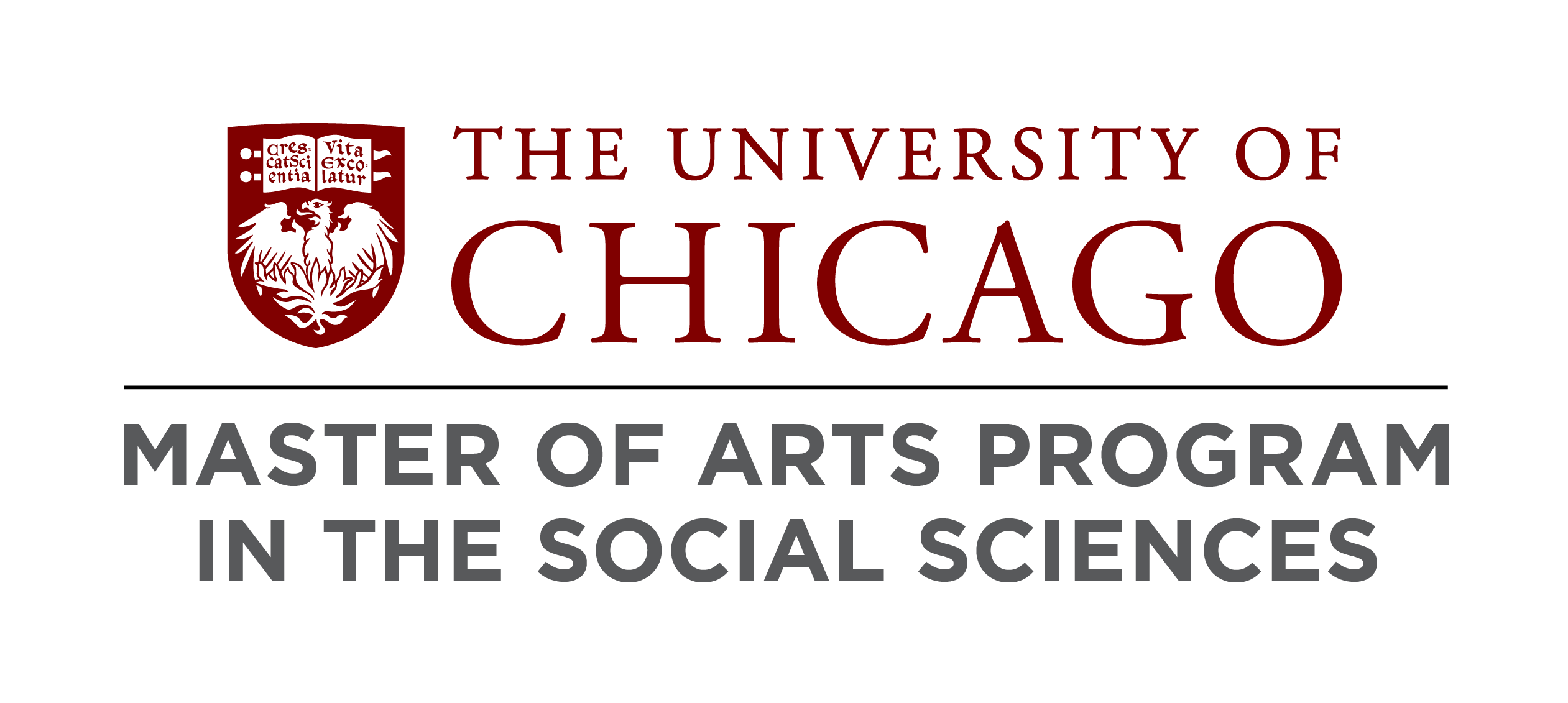MAPSS History
The Master of Arts Program in the Social Sciences has been committed to offering exceptional interdisciplinary graduate education for 90 years. Over the decades, MAPSS has evolved to offer a curriculum, research opportunities, and academic and professional development resources to train graduates who pursue myriad careers. Today, MAPSS allows students the opportunity to prepare for the PhD or a professional career path, or both.
Founded in 1934 as the first master’s program in the Division of the Social Sciences, MAPSS is the oldest and among the largest interdisciplinary social sciences master’s program in the United States. Initially, MAPSS primarily served high school and junior college social studies teachers by providing an opportunity to study sociology, political science, anthropology, history, and geography. By the 1940s, divisional faculty recognized that broad training in the social sciences was beneficial not only for teaching but for a wide range of careers, including academia. In 1946, Professors Earl S. Johnson, Sol Tax, and Bert Hoselitz revised the program’s curriculum to help students explore their intellectual interests and professional ambitions, ultimately readying themselves for a range of careers. The new curriculum required students to specialize in a subject of study while simultaneously pursuing general training in the social sciences.
By the 1970s, increasing numbers of MAPSS alumni utilized their UChicago research training to pursue successful careers in government, public policy, non-profit, for-profit, and education, prompting an evolution in the MAPSS program design. The overall curricular structure was retained, and more support for students was provided through the introduction of preceptors to mentor students through the program and help them formulate and complete an original research project in the form of a master’s thesis. Students took only one common course: Social Sciences 300, “The Social Sciences,” which introduced them to the history of social science concepts and theories and the application of social science theories in public policy.
In 1980, under the leadership of Professor Ralph Austen, the program’s current name was established. That year, Austen co-taught the program’s common core course with Professor John MacAloon. With the help of Professor Don Levine, the syllabus was organized around the concept of social science “perspectives,” defined as the distinctive ways in which social scientists observe and analyze the social world. MacAloon became the sole instructor of the course in 1981, and the course was renamed “Perspectives in Social Science Analysis.” While the syllabus has changed over the years, “Perspectives” remains the program’s core course today.
Under MacAloon’s leadership, MAPSS expanded into the vibrant and robust program it is today. MacAloon focused on the historical mandates of the program, accomplishing them in an environment changed by the increasing competitiveness of PhD programs and the MA becoming the career-entry credential in both the non-profit and for-profit sectors.
Over the past decade, MAPSS has developed a thriving internal career services office that provides professional development advising and resources to support the broad interests and career goals of current students. Those resources, coupled with the academic curriculum and educational immersion offered throughout the program, position MAPSS graduates to excel in many paths.
Leadership
- Jon Rogowski (Professor of Political Science) 2023 –
- Mark Hansen (Professor of Political Science) 2018 – 2023
- Dain Borges (Professor of History) 2015 – 2018
- Chad Cyrenne (Acting Director) 2014 – 2015
- John MacAloon (Professor of the Social Sciences in the College) 1989 – 2014
- Frederick F. Lighthall (Professor of Education and of Behavioral Sciences) 1984 – 1986
- Ralph A. Austin (Professor of History and of the Social Sciences in the College) 1979 – 1984, 1986 – 1989
- Salvatore R. Maddi (Professor of Behavioral Sciences and the Social Sciences) 1975 – 1979
- Lloyd I. Rudolph (Professor of Political Science and the Social Sciences) 1973 – 1975
- Bert F. Hoselitz (Professor of Economics and the Social Sciences) 1959 – 1973
- Earl S. Johnson (Professor of the Social Sciences) 1947 – 1959
- John Dale Russell (Professor of Education) and Lloyd W. Mints (Professor of Political Economy) 1934 – 1947
 THE UNIVERSITY OF CHICAGO
THE UNIVERSITY OF CHICAGO

